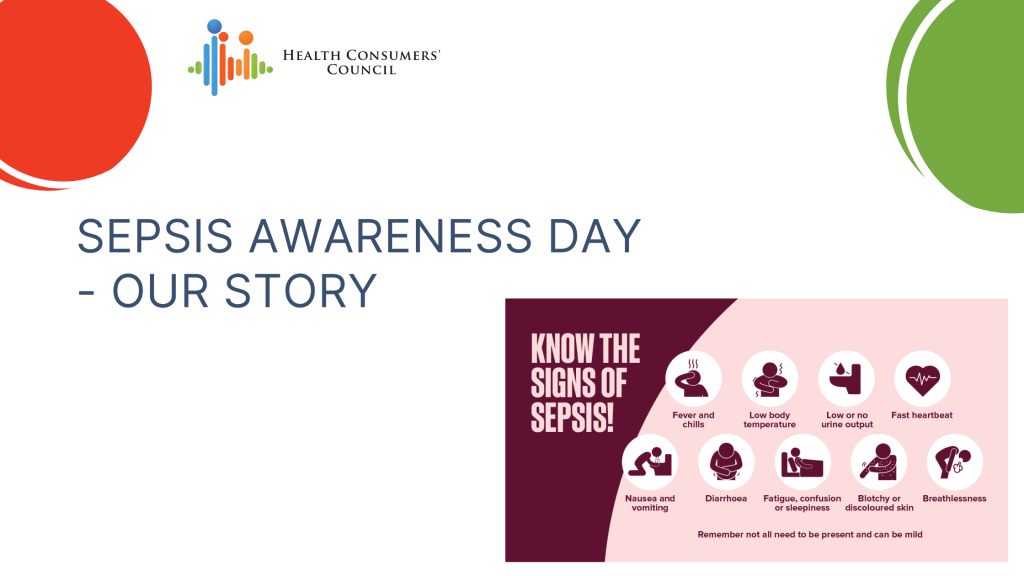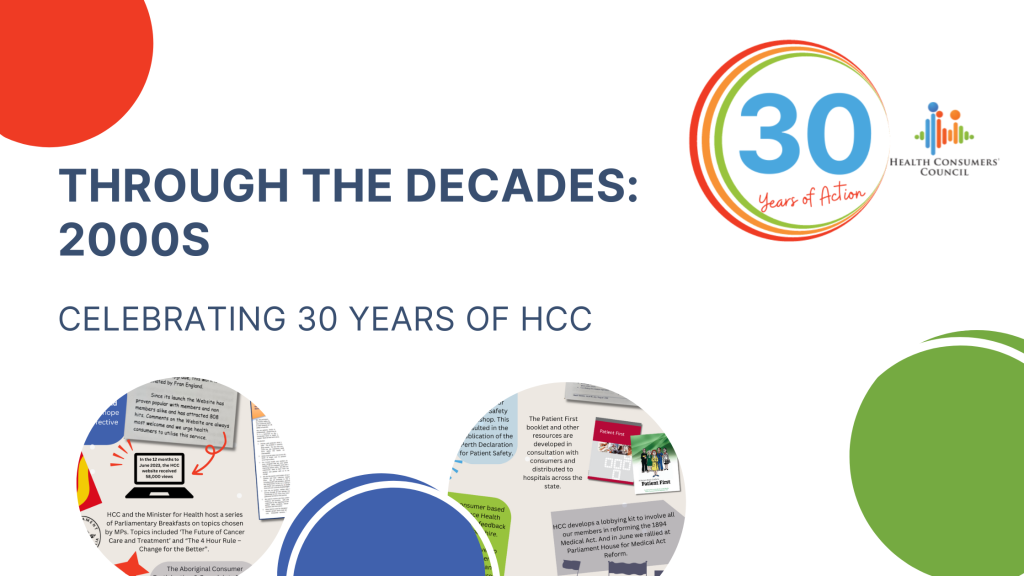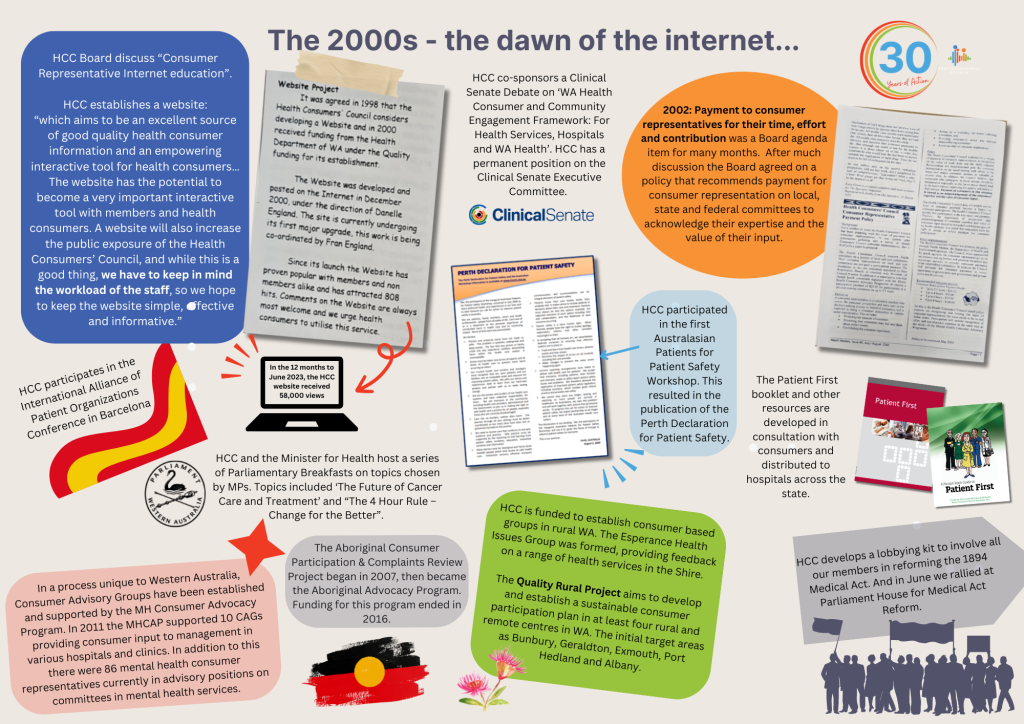
By Tania Harris – Mum, and Health Consumers’ Council Engagement Manager
Sepsis is a life-threatening condition that happens when the body’s response to an infection damages its own tissues and organs. Sepsis is preventable, but when it does happen it is a serious medical emergency that without rapid treatment can result in disability or death.
Any infection can lead to Sepsis, and anyone can get it. There is an increased risk for very young children, elderly people and people with chronic illness.
In Australia, over 55 thousand people are diagnosed with Sepsis every year, and more than 8,700 people will lose their lives to this condition.
I had been working at Health Consumers’ Council for a year when my daughter contracted Sepsis after a surgery, and since then I have been passionate about raising the awareness of this condition, in the hope that more awareness in community will mean less people losing their lives to Sepsis.
Tuesday 28th February 2017, I didn’t know anything about Sepsis, other than it was a “thing”, an over enthusiastic infection. By mid-morning Wednesday 1st March 2017 I had a horrible realisation that it might take her from us.
Lisa has Cerebral Palsy, hospitals and hospital wards were nothing new for us – she had been in and out for her whole life. Many surgeries and stays, and when she was 16 Lisa had had a feeding PEG inserted at an adult tertiary hospital in Perth. This was her (our) first experience in an adult hospital. On reading my Facebook posts on the procedure, it all went well, and I was very happy with the service we got at the hospital. My post on the 21st February 2017 to a Facebook group of parents and people with disability says:
“So, our Lisa is in RPH [Royal Perth Hospital] getting a PEG in. First time adult hospital and only second time in a place other than PMH [Princess Margaret Hospital for Children]. Gotta say, I am impressed. They are taking really good care of her and sorted the few issues there was around me staying, really quickly. Not once has a nurse not talked to Lisa first, they are listening and investigating when I am saying she seems off, the assumption seems to be that Lisa understands and I have a clue.”
A week later I got a phone call from the nurse at Lisa’s school asking permission to give her some Panadol, she was a bit warm and unsettled. By the time I got home around 5pm she still had a temp and had started vomiting. I did what I usually would do when she was unwell, Panadol and a shower. She was very quiet, and the shower didn’t seem to make her feel any better. So, I did what so many of us do, I reached out to other mums and to nursing friends. I called the hospital where the PEG was inserted. We went through symptoms, we talked about the PEG, it looked good. But I still had this feeling it was the PEG – it didn’t make sense it was anything else.
In my experience, for people and parents of people with disability and chronic health concerns, seeking medical intervention isn’t done lightly. So, when it happens, it’s serious. I called a dial a doctor, who thankfully was on his way past to somewhere else and dropped in. Lisa’s temp was then at 39 and she was looking unwell. He called an ambulance and by the time it arrived her temp had gone up to 41 and she looked worse. Lisa doesn’t use spoken language, but she is generally not a quiet girl, but she was so quiet that night.
At some point during that night, it became clear Lisa was very unwell, but I never heard the word “Sepsis”. The PEG wasn’t identified as an issue. My sister-in-law, at the time an ED nurse in a regional hospital, asked me what certain readings were and if certain tests had been ordered, and suggested I get my husband to come in. All signs were pointing to Sepsis, but I didn’t know any of them.
It turns out the PEG was the culprit, when the doctor inserted the PEG they went through part of the colon which was in an unexpected place because Lisa is in a wheelchair and her organs aren’t always in the same place as they might be for other people. A slow leak from her colon over a week had led to Sepsis.
Lisa spent almost a year in and out of hospital with recurrent infections, feeding tube issues, general unwellness. She has a massive scar on her chest and abdomen as a result of the required bowel resection and she still hates going to RPH 7 years later, but she – and we, are one of the lucky ones.
We were able to get medical attention for Lisa fast – from the dial a doctor, to the ambulance to the ED. Most importantly, all of those medical professionals listened to me and took my concerns seriously. It isn’t hard to imagine what would have happened if they hadn’t.
On Friday 13th September 2024 (World Sepsis Day), Child and Adolescent Health Service and the Department of Health WA is hosting the inaugural WA Sepsis Grand Round. This event will highlight pediatric, adult and maternal Sepsis.
This free event is being held at Perth Children’s Hospital and online, and an event highlight is the Clinician Panel, chaired by consumers and asking questions about Sepsis that matter to patients. I am very proud to be co-chairing with Leana and Tim.
The event runs from 9:30am – 3:30pm and is being hosted from the PCH Auditorium.
WA Sepsis Grand Round Tickets, Fri, Sep 13, 2024 at 9:30 AM | Eventbrite
You can book your place at the Eventbrite link, and attend either online or in person.







